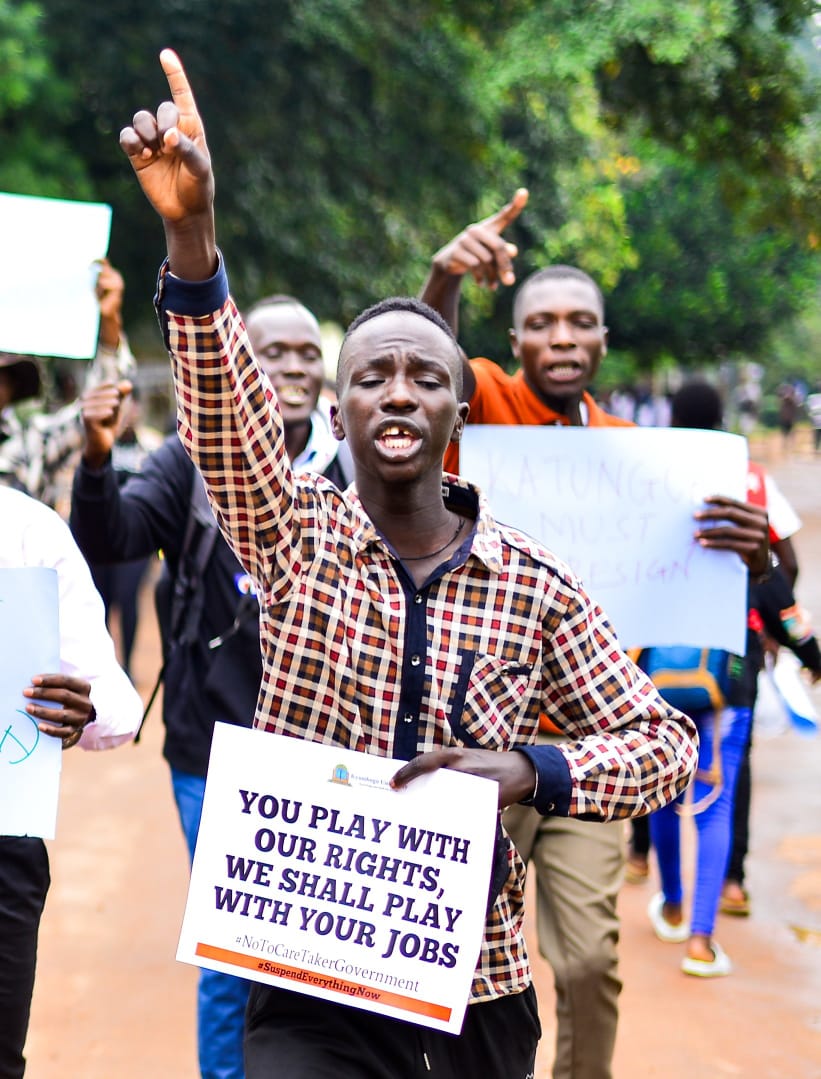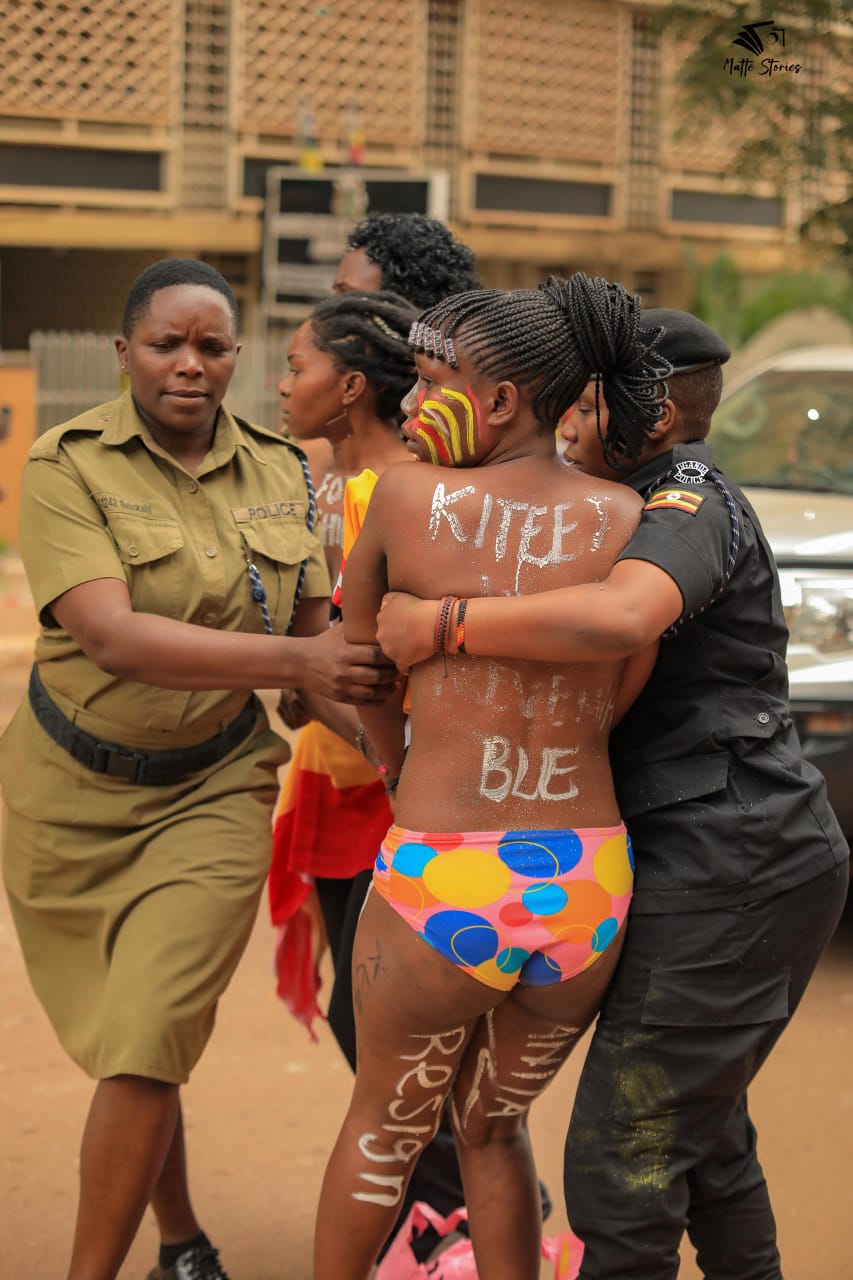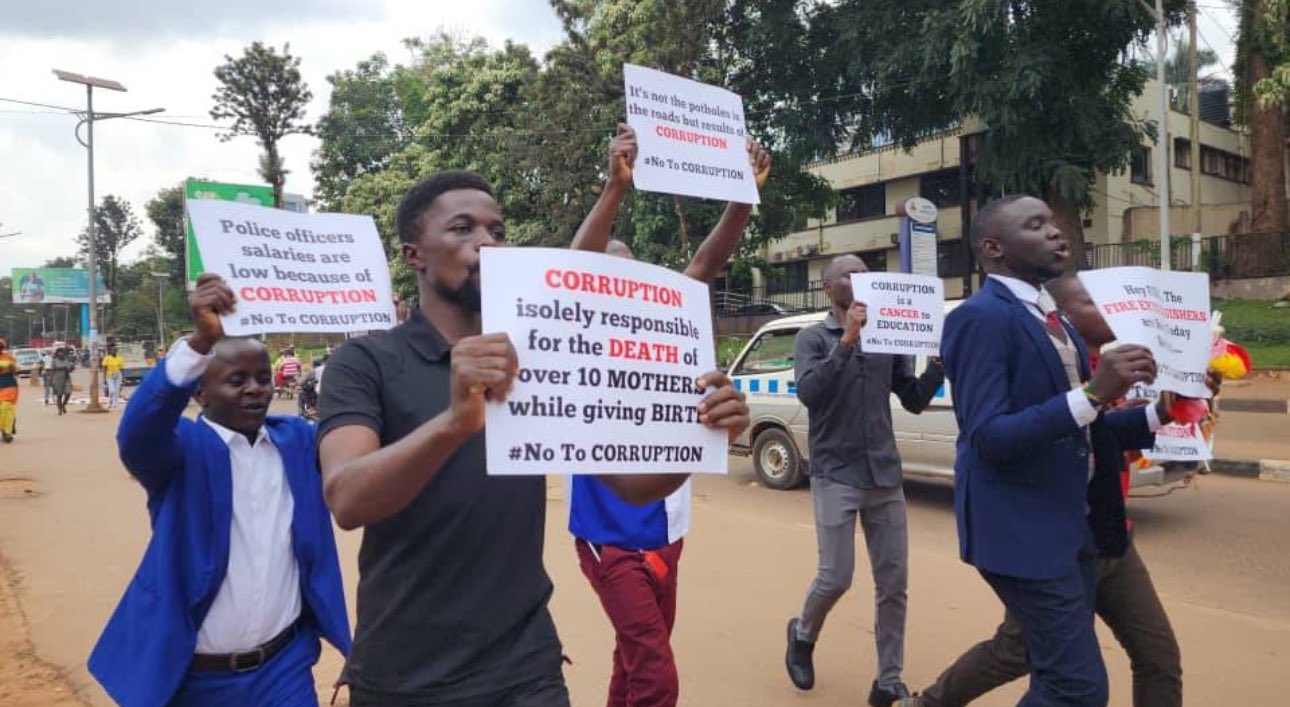Minds of the Movement
An ICNC blog on the people and power of civil resistance
by Godwin TokoAugust 27, 2025

Kyambogo University students joined the nationwide March to Parliament protests against corruption. Credit: Benjamin Akiso.
With a median age of just 16.9 years, Uganda’s population is only second to Niger as the youngest in the world. Despite this enormous demographic advantage, Uganda’s youths have mostly been absent from driving the destiny of their country. According to the country's leading independent newspaper, as of 2020, the average age in the national cabinet was 65 years! On top of that, the president – who is seeking re-election – is now 80 years old, and has been in power since 1986.
However, holding political office is not the only place young Ugandans are inconspicuous. For several years, the youths did not concern themselves with politics generally as much as their demographic advantage would entail. The joke was that Uganda’s youths were too busy partying and praying for miracles to concern themselves with politics. So, corruption ran amok. According to the inspectorate of government – the public ombudsman – Uganda lost 44 percent of government’s total revenue to waste or abuse. It goes without saying that the youths bore the brunt of this corruption: public schools including universities took a hit with funding cuts. Similarly, public healthcare was left without money to deploy fresh medical graduates – most of them Gen Z – who need the deployment to graduate. All hope, it seemed, was lost.
It was not.
Making corruption visible

In 2024, young women staged a nude protest against corruption, but they were met with brutal arrests by police. Credit: Matte.
In February 2024, an activist organization, Agora CFR, used social media to expose gross corruption in the national assembly. At the center of this exposé was the speaker and head of the institution, Anita Annet Among. Until then, her lavish lifestyle, funded by taxpayers, had gone without public scrutiny. Using simple examples, the Agora activists showed how corruption was affecting the young Ugandans. One flyer shared on their X (formerly Twitter) showed that public hospitals were running in the dark; donors bought them generators to overcome the frequent power blackouts. Simultaneously, the government was spending hundreds of thousands of tax dollars on generators for the private residences of the speaker and her deputy. Agora's campaign, dubbed "Uganda Parliament Exhibition", ignited an important discussion; first it trended on social media, then was picked up by the mainstream media – including international media, and eventual became the basis – of conversations in public transport, bars, and even the national assembly. Within months, the United Kingdom and United States separately sanctioned the speaker over corruption.
The speaker and president called it a witch-hunt funded by "homosexuals" and “imperialists", the public bogymen in Uganda. Given that Uganda had passed into law one of the world's most repressive laws against same-sex relations around the time, they probably hoped that this would turn the tide against the activists. If it worked, the impact was mostly negligible.
The youth voice for accountability

Ugandan youth march against corruption. Credit: Benjamin Akiso.
Instead, dismayed by the inaction from authorities despite the overwhelming evidence of corruption, the youth voice for accountability become ever louder on social media. It so happened that a Gen Z movement had risen in opposition to taxes proposed in the Finance Bill 2024 in neighboring Kenya around the same time. Ugandan youths picked a leaf and announced a similar protest for July 23, 2024, dubbed “The March to Parliament Protests”. Almost immediately, the police warned that it was "illegal". The president added his voice to the warnings; should they protest, he said in a televised address, the youths would be “playing with fired”. These warnings were not to be taken lightly; protests – however peaceful – in Uganda often turn deadly with the police and army using live ammunition against protestors. A protest in November 2020 led to the death of 54 according to government figures – the opposition say many more were killed – most of the deceased dying from bullet wounds.
A “common nuisance”
The youth didn't budge. On July 23, 2024, the protests happened across Kampala. As expected, the state swung into action and at least 150 youthful protesters from different economic backgrounds were arrested, charged with being "Common Nuisance", and most of them remanned for up to two weeks in Uganda’s notoriously overcrowded prisons. But their arrest was not in vain. The protest produced a new generation of Ugandan activists willing and ready to challenge the status quo, hold power accountable, and come to the fore in shaping the destiny of their nation. Some of the youths, it is important to note, were renowned supporters of the ruling party. Still, it didn’t end there. Since then, some of the youths have participated in many more protests, and recorded videos urging the youths to rise up and hold leaders accountable. One of them, Praise Aloikin Opoloje, was announced winner of the EU Human Rights Defenders’ Award, 2025. With election fast approaching, many of the Gen Z protesters have announced their bids to run for national assembly and lower positions.
-
There is an African saying: “No matter how tall a man may be, he can never see tomorrow." So, while it is too early to tell what will become of the Gen Z political awakening, it has, doubtlessly, inspired and encouraged more youths to keenly watch their leaders and their actions; not to party and pray for miracles as the nation slips ever further into corruption and misrule.

Godwin Toko
Godwin Toko is a Ugandan lawyer and activist currently working with Agora Centre for Research, an organization of activists dedicated to democracy, human rights, and political accountability in Uganda. As an activist, he was at the forefront of pushing for justice for the hundreds of youths arrested during the march to parliament protest in Kampala in 2024. All activists were released within weeks of their arrest.
Read More